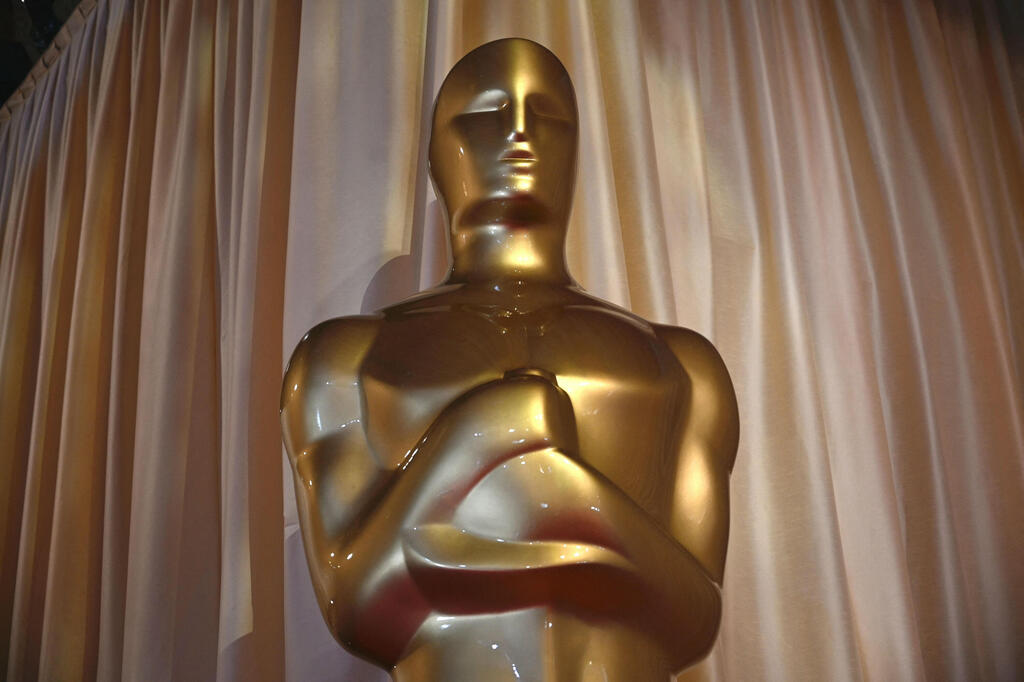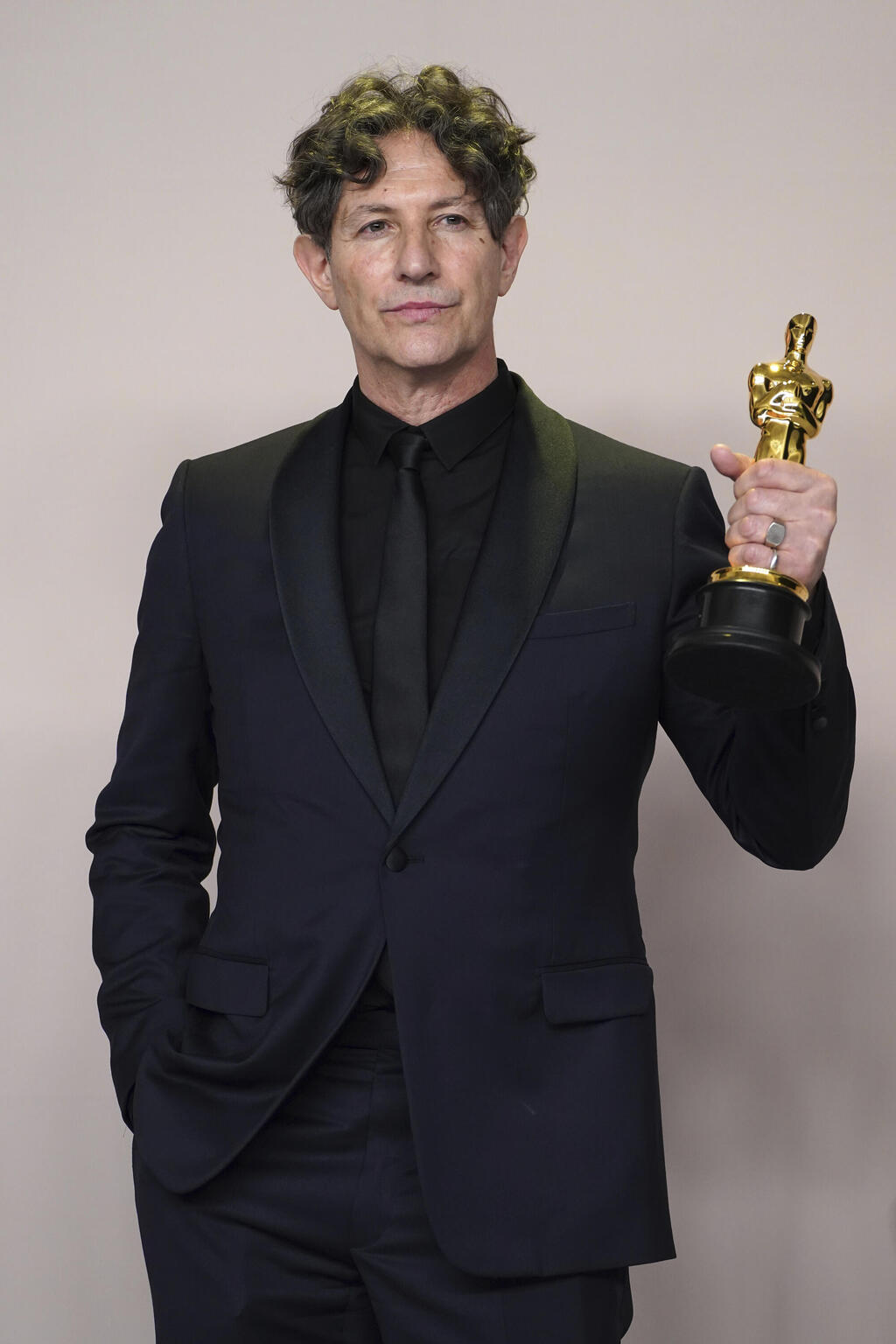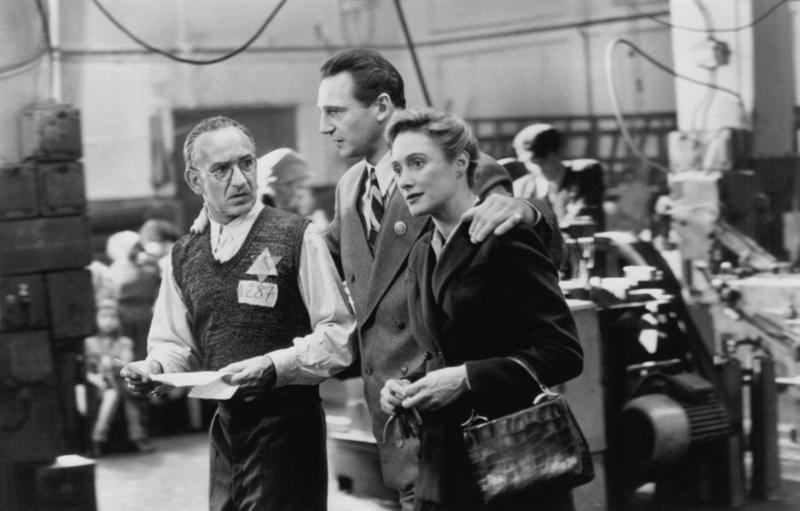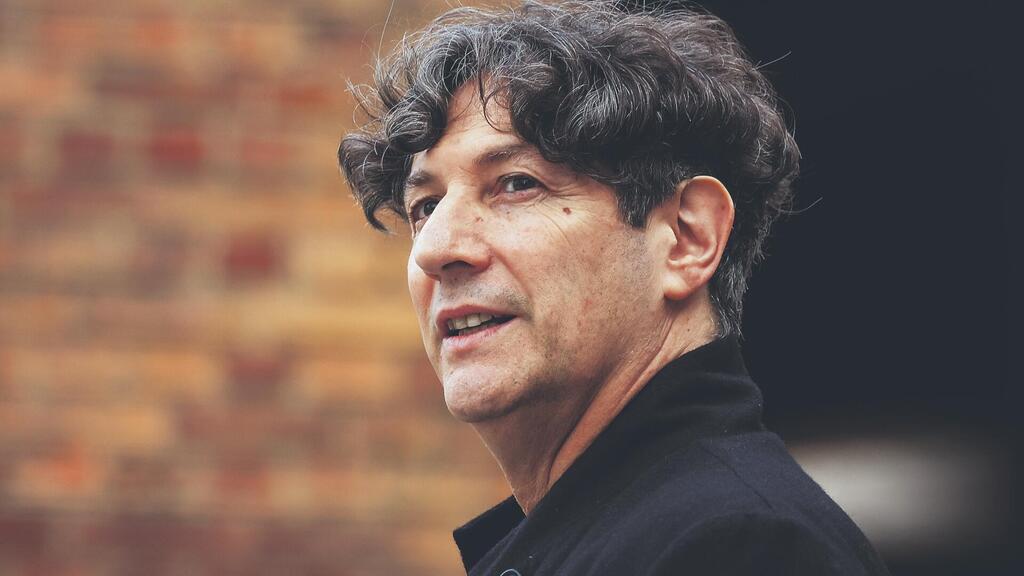Following his controversial acceptance speech at the Oscar ceremony, Jewish English director Jonathan Glazer spoke with Ynet about his successful Holocaust movie, despite not focusing on the victims' perspective but rather on the point of view of the Nazis.
Read more:
In the summer of 1996, Jonathan Glazer was barely 30 when he directed the MTV video for the song Virtual Insanity by Jamiroquai. In the summer of 2022, Glazer was in Auschwitz, Poland to shoot "The Zone of Interest" which would later win Best International Feature Film Oscar.
The movie revolves around the Hess family, where Rudolf, the commander of an abhorrent camp, lives with his wife, Hedwig, and their five mischievous children. Glazer, in collaboration with the Auschwitz Museum, found a structure similar to the family's home, outside the wall, and turned it into what Hedwig Hess dubbed the real "Garden of Eden." A piece of heaven in the heart of hell.
Glazer chose to show their life there in his film, a masterpiece of German bourgeois life, while the Nazi atrocities were unfolding a few dozen meters away. Hedwig Hess was growing greens by the pool while Jews were being exterminated in the gas chambers by her husband's orders.
The novel and the movie do not have many similarities. The novel focuses on the love triangle between the commander, his wife, and an SS officer who falls in love with her. The movie disregards the perspectives the book offers and chooses to focus on the Hess family. Speaking to Ynet, Glazer said that he became interested in the real Hess family. Glazer worked on the film for nine years, during which he visited Auschwitz and the museum again and again, gathering more and more details about the people responsible for the greatest horrors in history.
Commander Hess was hanged in 1947. The beautiful Hedwig remarried and died in Washington, D.C., in 1989. In his film, which has become a global sensation since its premiere at the Cannes Festival, Glazer wanted to remember them. Glazer explains he didn't want to give the comfort of identifying with the victims. Glazer mentioned that he told everyone they're doing 'Big Brother' in the Nazis' house by documenting their everyday life.
6 View gallery
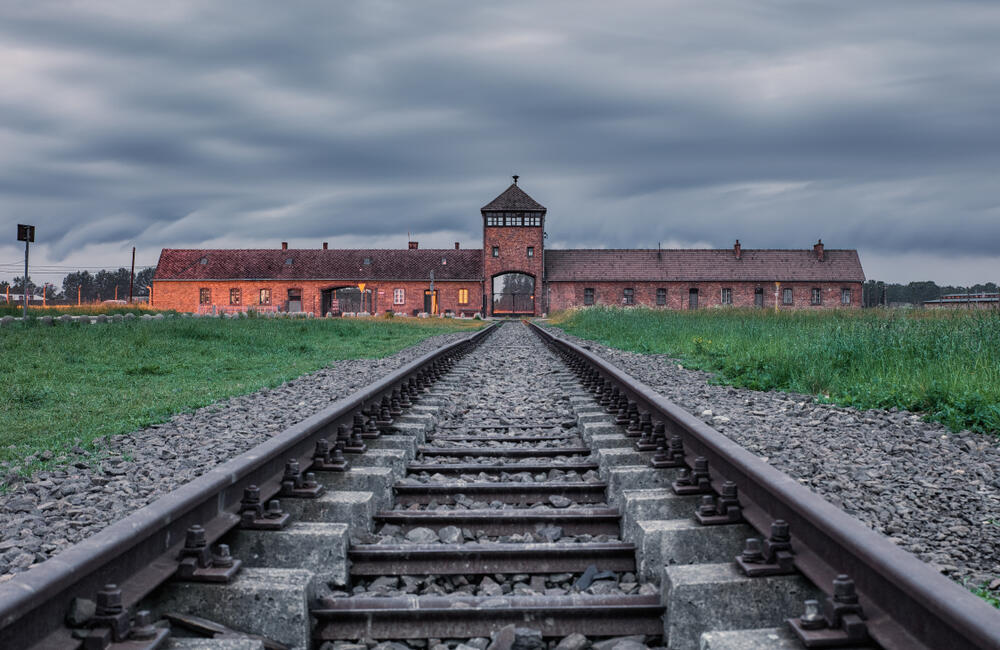

Glazer worked on his Holocaust movie for nine years
(Photo: Sergej Borzov / Shutterstock)
Glazer grew up in the Jewish-British bourgeoisie in North London and later moved to Camden Town. Much like his former neighbor, Amy Winehouse, his family was the kind that recited Kiddush every Friday and went to synagogue three times a year. In between, he had to hide his Jewish school jacket in his bag, so as not to be identified by the skinheads lurking on the street.
Despite his roots in Lithuania and Ukraine, Glazer said that the Holocaust was not discussed at home but he remembers his parents cutting out and preserving copies of "Time" and "National Geographic" articles about what happened in the camps. It was a constant warning in the living room.
In the 1980s, Glazer spent five months in a religious youth village in Israel. The visit didn't prompt the cinema-loving teenager to move to one of the surrounding kibbutzim. Instead, he immersed himself in the VHS player his father brought home. Later, when his friends from the art faculty at university asked him to shoot music videos for their band, the shy boy seized the opportunity and began his career.
During the 90s, Glazer became a king whom musicians worship for his unforgettable music videos for artists such as Radiohead, Blur, and Nick Cave. At the beginning of the millennium, at the peak of his success, he sets his sights on a cinematic career, hoping to become the next Stanley Kubrick, or at least the next David Fincher.
In 25 years as a film director, Glazer made only four films and all were excellent, all praised by devoted fans and critics, but none of them managed to attract a wide audience or prompt attention from Hollywood. The third movie, not released in Israel, was the highly enigmatic "Under the Skin," with Scarlett Johansson, playing a man-eating alien which failed at the box office. During his interview, he mentioned her Jewish pride and the fact they spoke about Judaism during the production of the movie.
A decade since his last film, Glazer no longer seeks consensus. When he makes a film about Auschwitz, consensus comes to him. Spielberg even noted that Glazer's movie was the best Holocaust film since "Schindler's List". While Spielberg's movie was an emotional Hollywood opus full of music with tears at the end, "Zone of Interest," on the other hand, is as chilling as a Nazi heart. However, the world connected with it.
Glazer was stunned by how the film was received before learning that he was nominated for an Oscar for the first time. Part of Glazer's avoiding the consensus was the ironic fact that his first Oscar nomination and win was in the Foreign Film category. Although the director is British, the movie is mainly in German, therefore in this category.
Glazer's Jewish identity was tested after the October 7 atrocities. Glazer was the first director to address the events of October 7. On October 8, while people in Be'eri and Kfar Aza were still hiding in their homes from terrorists and Harvard students were condemning Israel as being responsible for the massacre, Glazer attended a special screening at the prestigious New York Film Festival.
There he said that the recent days have been hard on everyone. A week later, he explained himself in an interview with the British Guardian paper, perhaps the most critical British newspaper towards Israel. He expressed his dismay of the cycle of violence which has appeared once again which will not disappear in his lifetime.
At the Oscars ceremony itself, Glazer delivered the evening's political moment, as his film was announced as the Best International Film film. "Our film shows where dehumanization leads, at its worst. Right now we stand here as men who refute their Jewishness and the Holocaust being hijacked by an occupation which has led to conflict for so many innocent people. Whether the victims of October the 7th in Israel, or the ongoing attack on Gaza, all the victims, this humanization, how do we resist?"
The film won the BAFTA award in February and Glazer's producer, James Wilson, took advantage of the opportunity to speak about the Gaza war. "Those walls are not new from before or during or since the Holocaust, and it seems stark right now that we should care about innocent people being killed in Gaza or Yemen, in the same way we think about innocent people killed in Mariupol or in Israel."
In my conversation with him, Glazer remained silent and cautious, yet piercingly human. He spoke about man's ability to commit such violent acts. According to Glazer, the crimes committed in the Holocaust were premeditated murder, but it was mainly carried out by ordinary people who became what they were. He added that it's a pattern in history and he believes that humans can evolve from this.


